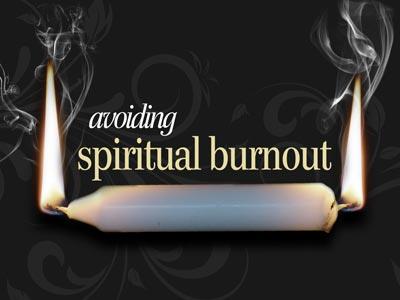-
The Encouragement Of Elijah
Contributed by Mark Lewis on Nov 28, 2017 (message contributor)
Summary: Discusses the ways that God helped Elijah after hearing of threat from Queen Jezebel to kill him.
THE ENCOURAGEMENT OF ELIJAH
PHILIPPIANS 4:19; 1 KINGS 19:1-18; 1 KINGS 17-19
INTRO. – One of the strongest men to ever serve God, the prophet Elijah, was gripped by a spirit of discouragement and despair.
Transition - Through the Holy Spirit and the author’s pen we are able to hear:
I. Elijah’s Thoughts (1 Kings 19:3-4)
A. Remember that Elijah had just confronted the prophets of Baal on Mt. Carmel, proving that the LORD is the only true and living God.
B. Upon hearing the report that Baal and Asherah had been defeated, Jezebel became furious and immediately sent out a messenger to Elijah, threatening his life (1 Kings 19:2).
C. Just as Jezebel had hoped, Elijah fled for his life (1 Kings 19:3-4a). When he had gone as far south as Beersheba, he left his servant there, not wishing to jeopardize his life any further. In addition, Elijah almost certainly wished to be alone, as the following verses indicate. Elijah traveled another day into the desert and eventually sat down under a broom tree. Growing to a height of about ten feet, the broom tree provided some shade for him.
D. Sitting and resting under the branches of a juniper tree, Elijah began to pray (1 Kings 19:4b).
1. He told the LORD he had reached the end. He had had enough. He asked the LORD to just let him die. Why would Elijah pray that way? I believe that there are three reasons:
a. Exhaustion
1. Illustration - Someone wrote that exhaustion is: The feeling that if I had to do it all over again, I’d be too tired.
2. Elijah was physically and mentally exhausted, and he was disappointed and discouraged at the king’s and the people’s hard hearts. He felt as though he had failed in his ministry, that he had achieved no more than his ancestors had, which was almost nothing. Consequently, the LORD may as well take him, for his life was of no more value on earth.
b. Loneliness
1. He said in verse 10, “…I only am left…”
2. Illustration - During a program on the Library of Congress, Dr. Daniel Boorstin, the Librarian of Congress, brought out a little blue box from a small closet that once held the library’s rarities. The label on the box read: Contents of the President’s Pockets on the Night of April 14, 1865. Since that was the fateful night Abraham Lincoln was assassinated, every viewer’s attention was seized. Boorstin then proceeded to remove the items in the small container and display them on camera. There were five things in the box:
* A handkerchief, embroidered “A. Lincoln.”
* A country boy’s penknife.
* A spectacles case repaired with string.
* A purse containing a $5 bill (Confederate money).
* Some old and worn newspaper clippings.
Dr. Boorstin explained that, “The clippings were concerned with the great deeds of Abraham Lincoln. And one of them actually reports a speech by John Bright which says that Abraham Lincoln is ‘one of the greatest men of all times’.”
History has proven that British statesman John Bright was right in his assessment of Lincoln, but in 1865 millions shared quite a contrary opinion.
The President’s critics were fierce and many. His was a lonely agony that reflected the suffering and turmoil of his country ripped to shreds by hatred and a cruel, costly war. There is something touchingly pathetic in the mental picture of this great leader seeking solace and self-assurance from a few old newspaper clippings as he
reads them under the flickering flame of a candle all alone in the Oval Office. -- Charles Swindoll, The Quest For Character, Multnomah, p. 62-63.
c. Discouragement
1. He was completely drained of physical strength. Mentally he was exhausted. He was drained spiritually at the moment coming off the victory of Mt. Carmel. He was running for his life. His circumstances were not the best at the moment.
2. Application - One of the hardest feelings for a person to deal with is discouragement. Whether the discouragement is real, imagined, or exaggerated, in our eyes alone or in the eyes of many, it is a crushing blow to a person’s sense of worth. The sense of having failed can lead someone to despair, discouragement, and cause one to sink into depression, even to contemplate and carry out suicide. But like Elijah, if we will turn to the LORD in our time of need, God will hear our cry and meet our need.
D. Transition - Through the Holy Spirit and the author’s pen we are able to see:
II. God’s Provision (1 Kings 19:5-18)
A. Elijah had experienced both victory and defeat as God’s prophet. But when his life and his task were too heavy to bear, it was to the LORD that he turned. And the LORD met Elijah where he was and took care of his every need. Just as the LORD met Elijah and provided for his need during his crisis, so the LORD will meet us and provide for us. If we will pray as Elijah did, the LORD will meet our need. He will provide for us in our moments of exhaustion, loneliness, and discouragement

 Sermon Central
Sermon Central



